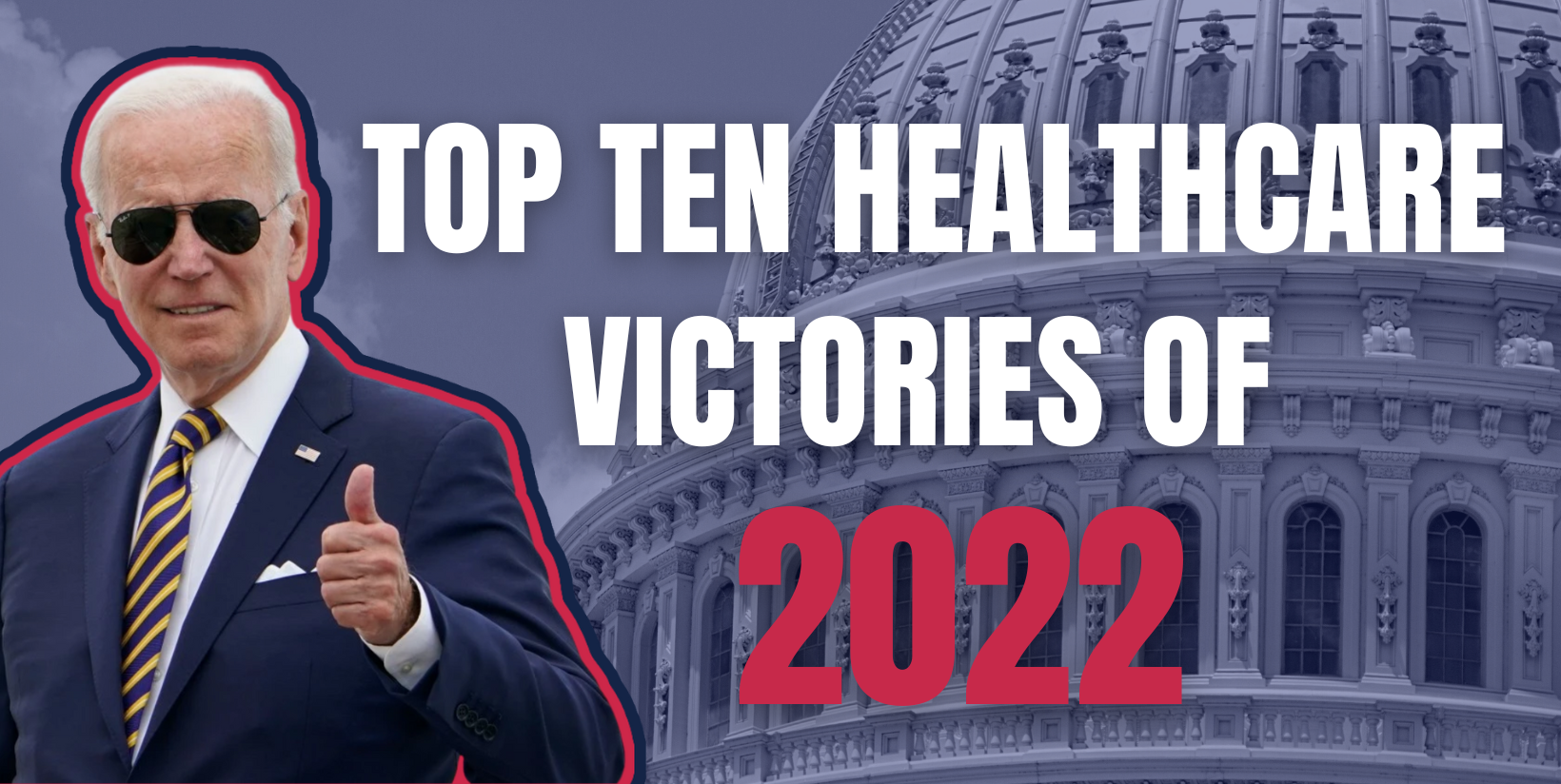
In 2022, President Biden and Congressional Democrats delivered on their promises by continuing to expand access to quality, affordable healthcare, and by making historic improvements to Medicare prescription drug coverage that will both lower prices and reduce out-of-pocket costs for millions of American families.
A key reason why is that Democrats passed the landmark Inflation Reduction Act (IRA) in August 2022 after months of negotiations — without a single Republican vote. The new law will be implemented in phases and makes long-overdue improvements to Medicare, one of the nation’s largest healthcare programs as well as the largest purchaser of prescription drugs.
The Inflation Reduction Act is the most consequential piece of healthcare legislation since the Affordable Care Act and builds on key health care policies passed in previous years to make record improvements to healthcare coverage and affordability in the U.S.
Check out fact sheets about how your state will benefit from the IRA and, below, learn more about the top 10 healthcare accomplishments of the year:
10. Lower Healthcare Premiums
A record number of people have signed up for Affordable Care Act (ACA) coverage in 2022, largely thanks to improvements in affordability that have been extended by the Inflation Reduction Act. The IRA lowers healthcare premiums by an average of $800 per year for 13 million patients and expands coverage to 3 million more people who previously could not access it.
9. Fixing the Family Glitch
For a decade, more than five million people were caught in the “family glitch,” leaving them ineligible for tax credits to buy family health insurance plans under the Affordable Care Act and forcing them to pay more for expensive employer-provided healthcare or go without insurance entirely. This year, the Biden Administration fixed the family glitch, expanding access to affordable care to millions of families.
8. Expanded Postpartum Coverage for New Moms
One in four births in the U.S. are covered by Medicaid, but, until recently, postpartum coverage for new mothers ended just 60 days after birth, despite the fact that health needs for new mothers extend far beyond that point. The American Rescue Plan Act (ARPA) funded states to expand postpartum coverage from 60 days to a full year. As of December 2022, 27 states have expanded coverage to a full year; another seven states are planning to expand.
7. Medicaid Expansion in South Dakota
Since the 2010 passage of the Affordable Care Act, a dozen states have refused to implement the Medicaid expansion provision that would provide millions of low-income families with desperately needed coverage. This year, voters in South Dakota decided to override partisan politics in their legislature and expand Medicaid coverage for tens of thousands of their neighbors via referendum, ending a 12-year stalemate.
6. All Vaccines Are Now Free for Medicare Enrollees
Many vaccines are covered under no-cost preventive care Medicare provisions, but some, like the shingles vaccine, have long been excluded from that coverage. Not anymore: starting January 1st, 2023 Medicare enrollees will receive all vaccines at no out-of-pocket cost.
5. New $35/Month Cap on Insulin Cost for Medicare Enrollees
In Medicare, out-of-pocket spending by people with Medicare Part D for insulin quadrupled between 2007 to 2020, forcing many patients to ration insulin, skip doses or go without. The Inflation Reduction Act caps the monthly cost of insulin for the first time so that 3 million Medicare enrollees can afford this life-saving medicine.
4. First Ever Cap on Out of Pocket Costs in Medicare Part D
Part D is Medicare’s prescription drug coverage program. Until now, patients in Part D paid an unlimited amount for out of pocket medicines, historically pushing many people into the “donut hole,” and now into catastrophic coverage. The IRA caps out of pocket costs in Part at $2000 annually for the first time, helping millions of people who currently pay more.
3. Stopping Drug Corporations from Raising Prices Faster Than Inflation
For years, drug corporations have had monopoly power to set and raise drug prices as much as they want, leading to price-gouging and forcing millions of patients to go into debt, ration medicine, or forgo prescriptions altogether because they can’t afford the escalating prices. Drug corporations has increased the price of over half the prices in Medicare at rates higher than inflation in recent years, but the Inflation Reduction Act will bring that price-gouging to an end. Starting January 1, 2023, Big Pharma will pay a penalty for raising prescription drug prices faster than inflation for patients on Medicare.
2. Medicare Negotiations for Lower Drug Prices
For far too long, Big Pharma has been able to charge Medicare exorbitant prices on prescription drugs while Medicare has been prohibited from negotiating for lower prices that would make medicines more affordable. The IRA finally enables Medicare to negotiate lower drug prices–just like the Department of Veterans Affairs does–in order to save taxpayers money and ensure seniors and people with disabilities can afford the medicines they need.
1. Lowest Uninsured Rate in U.S. History
Thanks to President Biden and Democrats in Congress, the number of uninsured Americans has fallen to around 9%, the lowest in the history of the country and a substantial improvement over past years when millions more people could not access quality, affordable coverage they could count on.

